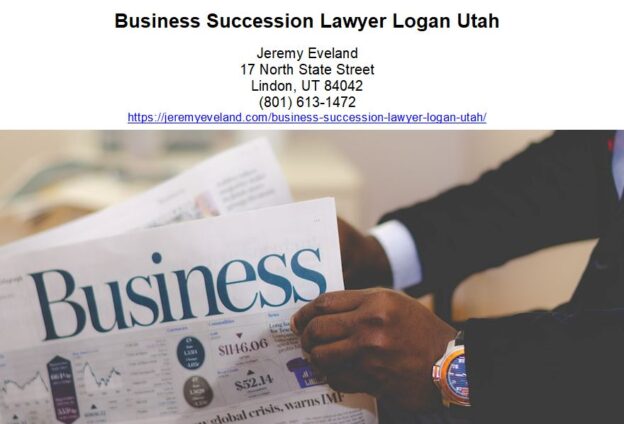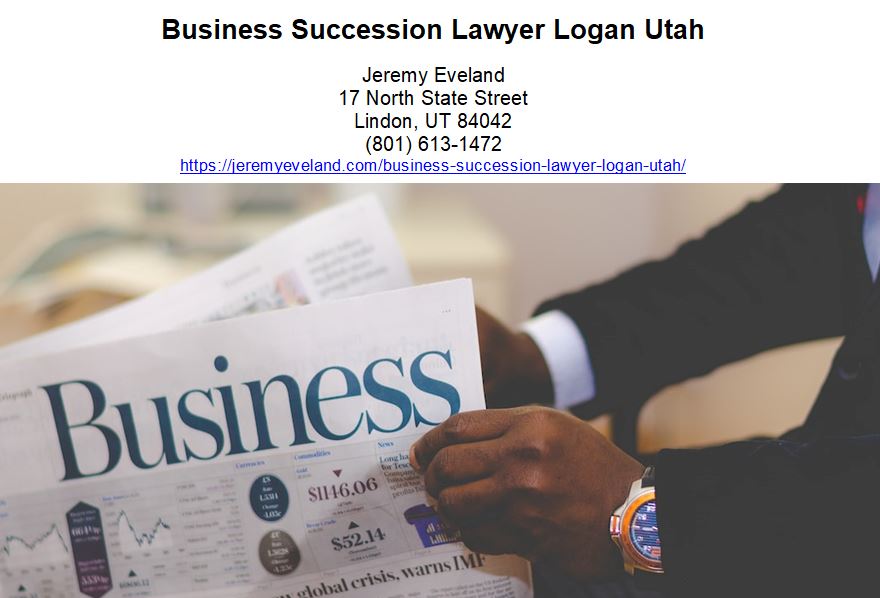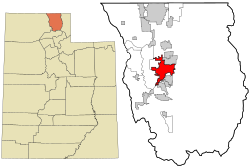When faced with the complex and often overwhelming task of settling an estate, it is vital to have the guidance and expertise of a skilled probate attorney. In the heart of Logan, Utah, you can find a trusted legal professional who specializes in navigating the intricate legal process of probate. With a commitment to delivering exceptional results, this attorney is well-versed in all aspects of probate law and will work diligently to protect your interests and ensure a smooth and efficient resolution. Don’t let the challenges of probate overwhelm you – contact a probate attorney in Logan, Utah today and secure the knowledgeable representation you deserve.
What is Probate?

Definition of Probate
Probate is the legal process by which a deceased person’s assets are distributed to their beneficiaries and any remaining debts and taxes are settled. It is a court-supervised process that ensures the proper administration of a deceased person’s estate.
Purpose of Probate
The purpose of probate is to carry out the wishes of the deceased and ensure that their assets are distributed according to their will or state law if there is no will. It provides a legal framework for the orderly transfer of assets and the resolution of any outstanding debts or disputes.
Why Do You Need a Probate Attorney?
Complexity of the Probate Process
The probate process can be complex and time-consuming. It involves various legal and administrative tasks such as filing court documents, notifying creditors, valuing assets, and distributing the estate. A probate attorney has the knowledge and experience to navigate through the complexities of the process, ensuring that all legal requirements are met.
Legal Expertise and Guidance
Probate attorneys are well-versed in probate laws and regulations. They can provide expert guidance on important legal matters, such as interpreting the deceased person’s will, determining the validity of any claims against the estate, and resolving disputes among beneficiaries. Their expertise ensures that the probate process is carried out in accordance with the law.
Avoiding Delays and Errors
One of the biggest advantages of hiring a probate attorney is that they can help you avoid unnecessary delays and costly errors. They have a thorough understanding of the probate process and can navigate through it efficiently, ensuring that all documents are properly filed and deadlines are met. This can save you time, money, and unnecessary stress.
Handling Contested Cases
In some instances, there may be disputes or disagreements among family members or other interested parties regarding the distribution of assets or the validity of the deceased person’s will. A probate attorney can provide invaluable assistance in handling contested cases. They can represent your interests, negotiate on your behalf, and help resolve disputes through mediation or litigation if necessary.
Protection of Interests
A probate attorney works to protect the interests of all parties involved in the probate process. They ensure that the wishes of the deceased are followed, that all beneficiaries receive their rightful share, and that any debts and taxes are settled appropriately. Their role is to advocate for you and your loved ones, providing legal protection and support during a challenging time.
Services Provided by a Probate Attorney
Probate Administration
A probate attorney can assist with all aspects of probate administration, including preparing and filing necessary court documents, notifying creditors and beneficiaries, and managing the overall probate process. They ensure that all legal requirements are met and that the estate is properly administered according to the deceased person’s wishes.
Asset Inventory and Valuation
One of the key tasks of probate is to inventory and value the deceased person’s assets. A probate attorney can help gather the necessary information and documents to create a comprehensive inventory of assets. They can also engage appraisers or other experts to determine the value of the assets, ensuring that the estate is accurately valued for probate purposes.
Creditor Notification and Debt Settlement
Probate involves settling any outstanding debts or obligations of the deceased person. A probate attorney can help notify creditors of the person’s death, address any claims against the estate, and negotiate settlements, if necessary. Their goal is to ensure that all creditors are paid, and that the estate is not burdened with unnecessary debt.
Estate Distribution
Once all debts and taxes have been settled, a probate attorney oversees the distribution of the estate to the beneficiaries. They ensure that the distribution is carried out in accordance with the deceased person’s wishes as stated in their will or according to state law if there is no will. Their role is to ensure a fair and equitable distribution of assets to the rightful beneficiaries.
Estate Litigation
In some cases, disputes or legal issues may arise during the probate process. A probate attorney can provide representation and guidance in estate litigation matters. They can help resolve disputes among beneficiaries, challenge the validity of a will, or defend the interests of the estate against any claims or legal challenges. Their expertise in estate litigation ensures that your rights and the rights of the estate are protected.
Choosing the Right Probate Attorney
Experience and Expertise
When selecting a probate attorney, it is important to consider their experience and expertise in probate law. Look for attorneys who specialize in probate and have a proven track record of successfully navigating the probate process.
Client Testimonials and References
One way to gauge the quality of a probate attorney is by reviewing client testimonials and references. Seek out feedback from previous clients to get an idea of their experiences and satisfaction with the attorney’s services. This can give you insight into the attorney’s professionalism, communication skills, and ability to deliver results.

Transparent Fees and Billing
Probate can be a costly process, so it is important to have a clear understanding of the attorney’s fees and billing structure. Look for probate attorneys who offer transparent and reasonable fees, and who are upfront about any additional costs that may be incurred during the probate process.
Accessibility and Availability
During the probate process, you may have questions, concerns, or updates that you need to discuss with your attorney. It is important to choose a probate attorney who is easily accessible, responsive, and available to address your needs in a timely manner. Clear lines of communication are key to a successful attorney-client relationship.
Personal Connection
Probate is a sensitive and emotional process, and it is important to choose an attorney with whom you feel comfortable and have a good rapport. Trust your instincts and select a probate attorney whom you feel understands your needs, values your input, and treats you with empathy and respect.
The Importance of a Local Probate Attorney
Familiarity with State Laws and Procedures
Probate laws and procedures can vary from state to state. Hiring a local probate attorney ensures that you have someone who is familiar with the specific laws and requirements of your state. They can help you navigate through the intricacies of the local legal system and ensure compliance with all necessary procedures.
Knowledge of Local Court System
In addition to state-specific laws, a local probate attorney has inside knowledge of the local court system. They are familiar with the judges, clerks, and other court personnel who may be involved in the probate process. This familiarity can streamline the process and help avoid any unnecessary delays or complications.
Established Relationships with Local Professionals
A local probate attorney often has established relationships with other professionals who may be involved in the probate process, such as appraisers, accountants, or estate planners. These relationships can be beneficial in obtaining the necessary expertise and services needed to properly administer the estate. It also helps to ensure a smooth and efficient probate process.
Convenience and Accessibility
Choosing a local probate attorney offers the convenience and accessibility of having regular face-to-face meetings, should the need arise. This enables a more personal and collaborative working relationship, allowing for effective communication and a better understanding of your specific needs and concerns.
Questions to Ask a Probate Attorney
Experience in Probate Law
Ask the probate attorney about their experience in handling probate cases. Inquire about the number of cases they have successfully handled and their specific expertise in probate law. Feel free to ask for examples of similar cases they have worked on and the outcomes they achieved.
Success Rate in Probate Cases
Find out about the attorney’s success rate in probate cases. Ask about their track record in achieving favorable outcomes for their clients and resolving any disputes or legal challenges that may have arisen during the probate process.
Familiarity with State Laws and Procedures
Since probate laws and procedures can vary by state, it is important to confirm the attorney’s familiarity with the laws and requirements of your specific state. Ask about their experience in handling probate cases in your state and any unique knowledge they have of local procedures.
Communication and Availability
Effective communication is crucial during the probate process. Inquire about the attorney’s preferred method of communication and their availability to address your questions or concerns. Ask how quickly you can expect a response and how often you will receive updates on the progress of your case.
Fee Structure and Additional Costs
Discuss the attorney’s fees and billing structure upfront. Inquire about any additional costs that may be incurred during the probate process and how they will be handled. It is important to have a clear understanding of the financial aspects of working with the attorney to avoid any surprises down the line.
Understanding the Probate Process
Initiating the Probate Process
The probate process typically begins with the filing of a petition with the probate court. This petition requests the court to initiate the probate proceedings and appoint a personal representative or executor to administer the estate. The court will then issue various orders and notices to get the process started.
Gathering and Inventorying Assets
Once the probate process is initiated, the personal representative or executor is responsible for gathering and inventorying the deceased person’s assets. This includes identifying and locating all assets, such as bank accounts, real estate, investments, and personal property. A detailed inventory must be created, including a valuation of each asset.

Paying Debts and Taxes
During probate, any outstanding debts of the deceased person must be settled. This includes paying off creditors, such as outstanding credit card bills, loans, and medical expenses. Additionally, any taxes owed by the estate, such as income tax or estate tax, must be paid from the estate’s assets.
Distribution of Estate
Once all debts and taxes have been paid, the remaining assets of the estate are distributed to the beneficiaries. This is done according to the deceased person’s will or, if there is no will, according to the state’s intestacy laws. The personal representative or executor is responsible for ensuring that the distribution is carried out accurately and in accordance with the law.
Closing the Estate
Once all assets have been distributed and all debts and taxes have been settled, the personal representative or executor must file a final accounting with the probate court. This accounting summarizes all financial transactions that occurred during the probate process. Once the court approves the final accounting, the estate is considered closed, and the probate process is complete.
Common Probate Issues
Disputes Among Beneficiaries
One common issue that can arise during probate is disputes among beneficiaries. This can occur when beneficiaries believe they are entitled to a larger share of the estate or when there are disagreements regarding the interpretation of the deceased person’s will. A probate attorney can help navigate these disputes and work towards a resolution.
Claims Against the Estate
It is not uncommon for individuals or entities to make claims against the estate during probate. These claims may involve debts owed by the deceased person, such as outstanding loans or unpaid bills, or claims of individuals who believe they are entitled to part of the estate. A probate attorney can help address these claims and protect the interests of the estate and its beneficiaries.
Invalid or Outdated Wills
Sometimes, a deceased person’s will may be deemed invalid or outdated, leading to complications during the probate process. This can occur if the will was not properly executed, if there are questions regarding the person’s mental capacity at the time of creating the will, or if the will has been superseded by a more recent version. A probate attorney can help address these issues and ensure that the estate is properly administered.
Lack of Adequate Estate Planning
If a deceased person did not engage in proper estate planning, it can result in various challenges during probate. Without a will or other estate planning documents in place, the distribution of assets may be subject to state intestacy laws, which may not align with the person’s wishes. A probate attorney can help navigate through these challenges and ensure that the estate is properly administered and distributed.
Is Probate Always Necessary?
Small Estates with Simplified Probate Options
In some cases, probate may be unnecessary or can be simplified for small estates. Many states have simplified probate processes for estates below a certain value threshold. These processes typically involve simplified court proceedings or alternative procedures that can expedite the probate process for small estates.
Assets with Designated Beneficiaries
Certain assets, such as life insurance policies, retirement accounts, or jointly held property, may already have designated beneficiaries. These assets usually pass directly to the designated beneficiaries outside of the probate process. It is important to review your assets and ensure that they have designated beneficiaries to potentially bypass probate.
Revocable Living Trusts
One way to avoid probate altogether is by establishing a revocable living trust. Assets held in a revocable living trust can transfer directly to the designated beneficiaries upon the person’s death, without going through the probate process. A probate attorney can assist in setting up and administering a revocable living trust.
Joint Tenancy with Right of Survivorship
Another way to potentially avoid probate is by holding assets as joint tenancy with the right of survivorship. When one joint tenant passes away, the ownership of the asset automatically transfers to the surviving joint tenant(s), bypassing the probate process. It is important to consult with a probate attorney to ensure that joint tenancy is the appropriate ownership structure for your assets.
Contact a Probate Attorney Today
Overview of the Law Firm
ABC Law Firm is a trusted and experienced probate law firm located in Logan, Utah. Our team of dedicated probate attorneys is committed to providing professional and comprehensive legal services to clients during their time of need. We understand the complexities of the probate process and work diligently to protect the interests of our clients.
Contact Information
To learn more about our probate services or to schedule a consultation, please contact us using the following information:
ABC Law Firm 123 Main Street Logan, Utah 12345 Phone: (555) 123-4567 Email: info@abclawfirm.com Website: www.abclawfirm.com
Consultation and Case Evaluation
We offer initial consultations and case evaluations to discuss your specific needs and concerns. During this consultation, we can provide personalized guidance and a thorough assessment of your probate case. Contact us today to schedule your consultation and let us assist you in navigating the probate process with confidence and peace of mind.

















